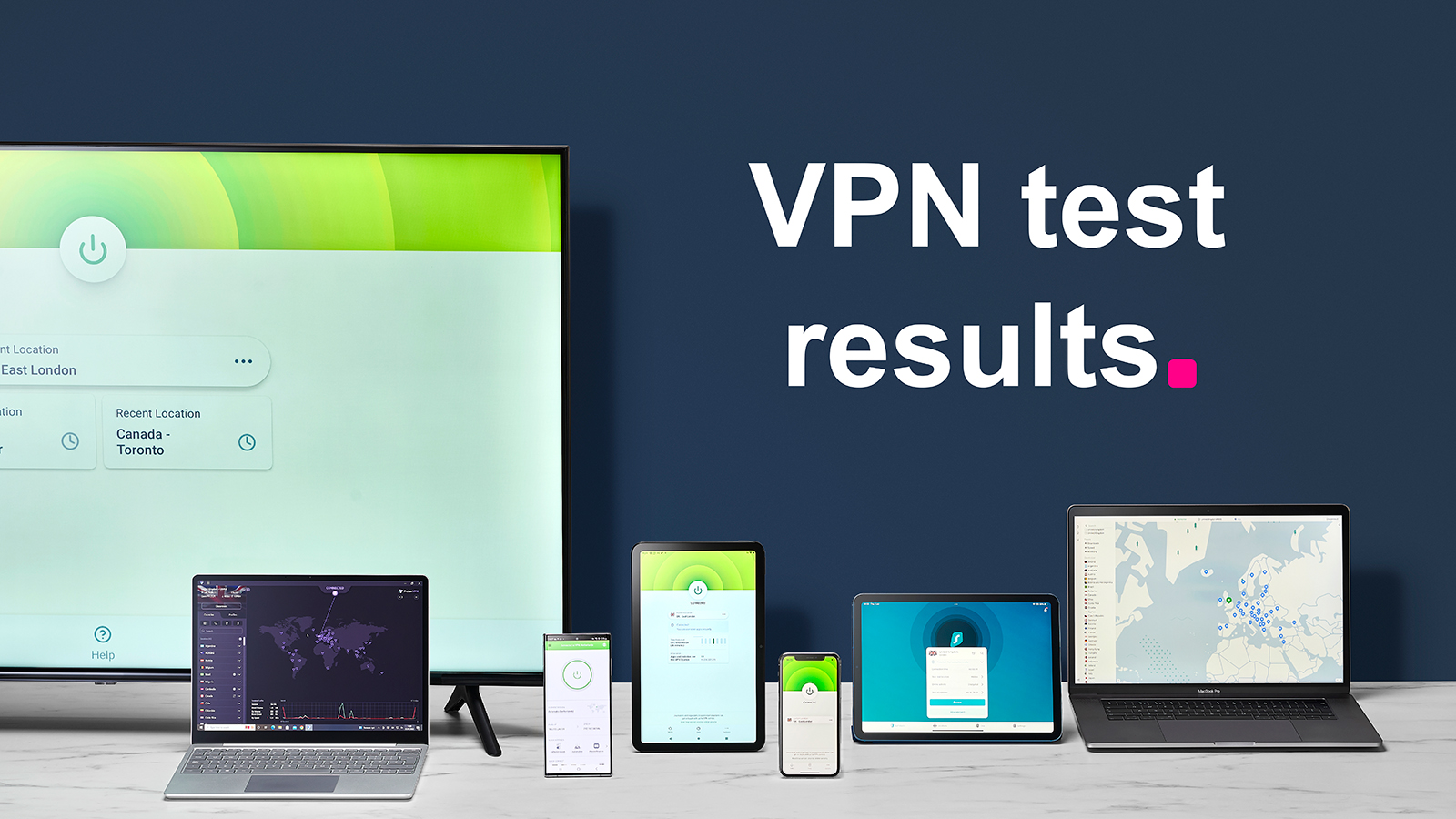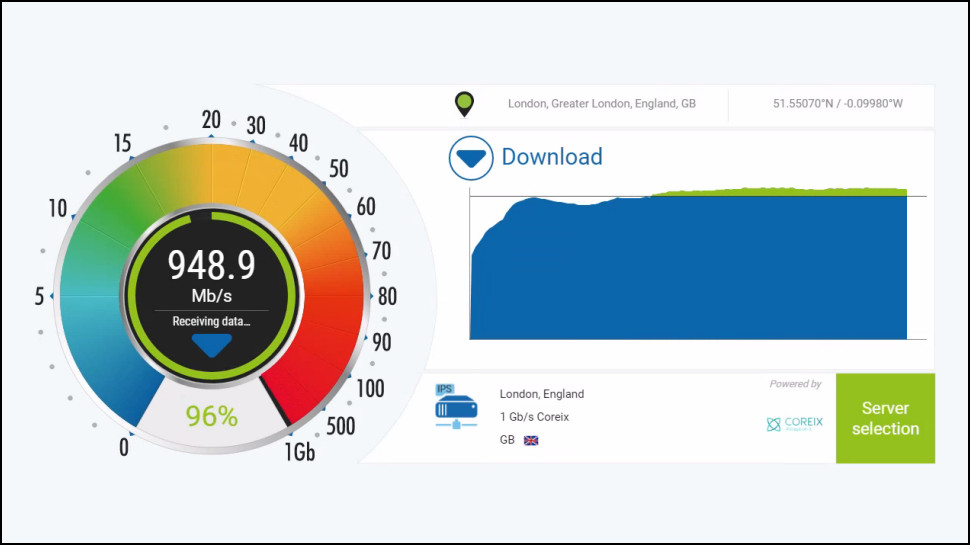
Hundreds of hours spent testing the biggest and best virtual private networks (VPNs) have all boiled down to this: the latest VPN rankings in 2024. Our experts regularly pick apart mobile and desktop apps to test out speed connections, features, security, overall performances, and, most importantly, their value for money. All this work is to suggest just the best VPN services on the market today.
The previous round of testing saw NordVPN stealing the crown as a top recommendation from ExpressVPN. While the latter remains a reliable and secure VPN choice, we thought NordVPN offers more value for money thanks to its ever-growing mass of features, reliable content unblocking, and customizable pricing which means you only need to pay for what you want to use.
This time, ExpressVPN lost another ranking position as Surfshark jumped from third to second. Other changes in rankings include Proton VPN replacing Private Internet Access (PIA) at number four.
Read on to find out more about the reasons behind these changes, and how each VPN compares in our rigorous testing.
The 5 best VPNs in 2024
Our latest test results
As mentioned earlier, this round of testing saw some pretty big shake-ups to our best VPN list.
While NordVPN managed to keep its crown as top pick, ExpressVPN slid down yet again to third place, with Surfshark gaining a silver medal for the first time. Proton VPN climbed the ranking a little, too, moving from the fifth to fourth position.
PIA had to finally say goodbye to the top 5 VPNs, moving to #6 as it was replaced by PrivadoVPN, the best free VPN service on the market right now.
IPVanish mantained its seventh place in our rankings, followed by Windscribe, CyberGhost and Mullvad. The latter is surely a decent service and a popular choice for privacy purists, but the clunky apps and lack of unblocking capabilities leave it feeling dated and buried in the shadow of the industry leaders.
Mike Williams, our lead VPN Tester, puts it best: "A great VPN isn't necessarily about having the longest feature list or the highest possible speeds. What really matters is quality, attention to detail, and the kind of consistency that says not only can you trust this provider with your privacy right now, but you can be confident it'll stay that way for the foreseeable future."
I agree with him – you're not just buying a VPN in the here and now, you're investing in it for the next few years. It's one of the key reasons ExpressVPN held the crown for so long. We had so much confidence in what Express was doing.
However, with ExpressVPN's recent DNS leak issue compounding our anxieties after the Kape layoffs, we knew that NordVPN was the right choice for the top spot this time around. With its enormous wealth of features and fantastic value for money, it had finally overtaken its biggest rival.
Stream unblocking results
VPNs regularly claim they unblock all of your favorite shows, but which ones really do? Check out the results from our testing below to see whether a service can access global streaming services:
Malware, tracker, and ad-blocking results
Many VPNs say they have built-in ad, tracker, and malware blocking, and most reviews just take it for granted that these work and deliver useful results. Our lead tester aimed to measure this feature for each provider, and see how they compare to each other.
The tests included the following:
- A custom tool that tries to access a selection of URLs (300-600-ish) from a daily updated curated list of malicious URLs, like GitHub, and records what happens
- A phishing test attempting to open 100 brand new malicious URLs from anti-phishing experts OpenPhish (https://openphish.com)
- Running a couple of ad-blocking testers (including AdBlock Tester) and recording the score.
Without further ado, lets see which VPNs give you that little bit extra, and which ones are only offer lip service:
When we test the ad blocking capabilities, we were testing using only the app, and not any additional browser extensions as these should operate system-wide. However, it is worth noting that using the browser extension for a provider can greatly increase the level of protection it offers, and some providers, such as Surfshark for example, find their ad blocking capabilities are greatly enhanced through the addition of their browser extensions.
VPN speed testing
It's a well-trodden sales technique for VPN providers to claim they have the fastest speeds – but they clearly can't all be the fastest. That's why we test the speeds on offer from all the top VPNs across different global servers and on a variety of protocols.
Below are the speed results for the top VPN services, during our latest tests:
TechRadar's VPN rankings
There are hundreds, if not thousands of VPNs out there, and you've likely heard the names of countless services. Check out our rankings below of popular services and see some honorable mentions that can't currently compete with what's on offer with our top services.
How we test VPN services - our review methodology
While our experts use the top VPNs every day, we conduct a comprehensive analysis of the top 30 VPN services every 6 months with the help of Mike Williams and Anthony Spadafora. This allows us to keep track of who's really the best, and for which use cases.
TechRadar's VPN reviews begin at the provider's website, where we analyze the claims it makes, its privacy policy, its support options, and any other elements of note. We look for any tracking cookies on the site and if/when they activate to see if the service tracks people using the site.
Next, we ask ourselves the following questions: what security tools does the provider offer? Does it promise the world, or is it more realistic? Does the privacy policy clearly say how your data is handled? Are there any catches in the small print? Is the pricing open and honest? Ultimately, we're considering not just what the provider says it gives you, but what it really gives, and whether you can trust it with your data.
There's more to a VPN than just what its marketing says. Where possible, we try to go behind the curtains and look at what's really going on and doing our own testing to see whether the apps really work as claimed.
In order to make sure our reviews are as honest and realistic as possible, we make every effort to sign up for the services anonymously, so our results aren't skewed by the services knowing they're being tested by us.
After signing up for a plan, we install and test the Windows, Mac, Android, iOS, and Linux VPN apps, as these are the most popular platforms. Then, we move on to testing the features within those apps, like the kill switch, checking for data leaks, and generally confirming everything works as advertised.
As we do this, we play around with the different encryption protocols on offer, connect to different servers, throw malware at it, and generally look for any way we can stress test the service. If anything breaks under any of our tests, we report it back to the provider so they can fix the issue, but we make sure to include both the issue and the provider's response in our results where appropriate.
We test every VPN provider's speeds at least 120 times across two sessions, and use both a US home connection and a 1 Gbps UK data center to show us a provider's potential versus the real-world application. We measure using different encryption protocols, speed test websites, and features and use the average of the best session as the provider's peak speed. In doing so, you get a better understanding of what you can really expect when you use the service, and not just an arbitrary figure of its fastest speed.

A good VPN should be able to unblock multiple streaming services. To check this, we try to access geo-exclusive content from Netflix, Amazon Prime Video, Disney Plus, and BBC iPlayer, repeating the test from three different locations around the world to get an idea of how the service performs in real life.
In our day-to-day testing, we take a more focused approach depending on the needs of the specific use cases we're writing about. Such as how easy it is to set up the VPN, how much attention to detail there is in the design, and whether a beginner can pick it up easily. We carry out constant real-world testing to make sure our analysis is always accurate and relevant.
However, I don't just trust what I see on the surface of a VPN provider's website. I'll take a peek behind the curtains of the software – view the contents of its RAM, even decompile and browse its source code (if I can) just to find out what's going on under the hood. Ultimately, I want to know whether the service gives you genuine protection or just a false sense of security.
Want to know more about how we test VPNs? We have a much more in-depth explanation on our VPN testing methodology page.
Our VPN testing panel
Meet the experts behind our VPN deep dives:







